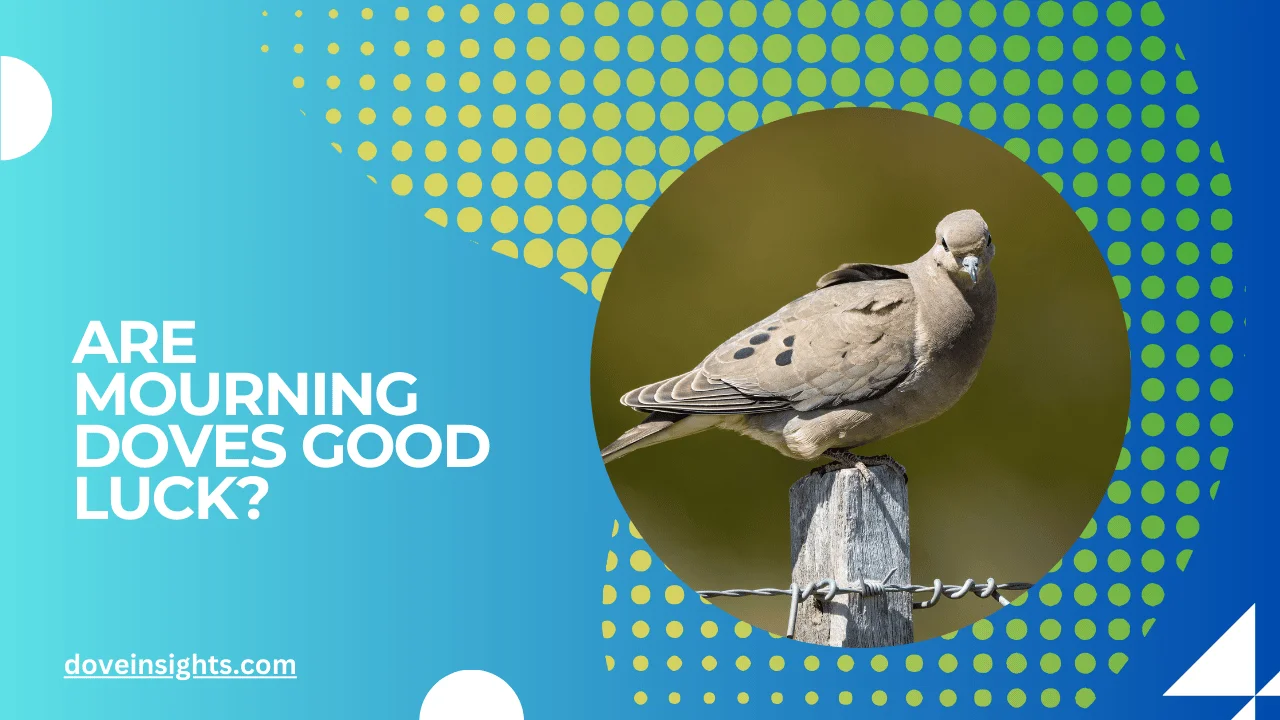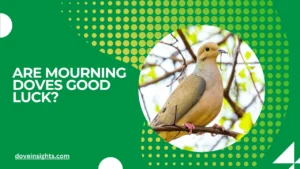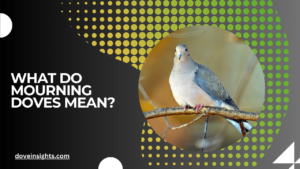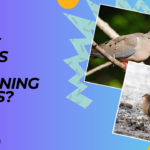Have you ever spotted a mourning dove perched quietly on a fence or heard its soft, soothing coo echoing in the distance?
This gentle bird, often symbolizing peace and love, has been the subject of myths, beliefs, and spiritual interpretations for centuries. While it may seem like an ordinary bird, its presence has sparked an age-old question: Are mourning doves good luck?
In many cultures, doves—particularly the mourning dove—are considered messengers from the divine, bringing good fortune, guidance, and even comfort in times of grief. But is there any truth to the belief that these birds bring luck?
Is their peaceful nature a sign of positive energy, or is it just another romanticized idea rooted in ancient traditions? In this article, we’ll delve into the symbolism and significance of mourning doves and explore the question of whether or not they truly bring good luck.
Whether you believe in superstitions or simply enjoy the presence of these elegant birds, understanding their role in our lives can offer fascinating insights into the intersection of nature, culture, and the concept of luck.
Join us as we explore the rich history and symbolism of the mourning dove, and see if their peaceful nature really does hold the key to good fortune.
Contents
Mourning Doves and Their Symbolic Connection to Good Luck
Mourning doves are often seen as symbols of peace and healing, making them one of the most beloved birds in spiritual and cultural traditions. The association between mourning doves and good luck can be traced back to their symbolism in various societies.
Many cultures have linked these gentle birds to concepts of hope, renewal, and spiritual protection, suggesting that their appearance in your life could be a sign of positive change.
In Native American traditions, doves are often viewed as messengers, carrying good fortune and wisdom. They are believed to have the ability to connect people with their ancestors and offer guidance during difficult times.
The gentleness of the mourning dove, combined with its soft cooing sound, has long been interpreted as a sign that the universe is offering you comfort and peace during moments of uncertainty or challenge.
Similarly, in Christianity, the dove represents the Holy Spirit, a symbol of divine peace and comfort.
The dove’s appearance during a significant moment or after a personal struggle is often interpreted as a sign of blessing or divine favor. These symbolic connections contribute to the widespread belief that mourning doves can bring good luck into our lives.
Mourning Doves in Folklore and Superstition
Like many animals, mourning doves have been woven into the fabric of folklore and superstition. Across different cultures, the presence of a mourning dove is often seen as an omen, either foretelling good luck or signifying a positive shift in a person’s life.
In European traditions, for example, it is commonly believed that if a mourning dove flies near you, it brings a blessing or prosperity.
Some superstitions even claim that hearing the cooing of a mourning dove during a moment of personal doubt or indecision is a sign that things will soon improve, bringing hope and positive outcomes.
In rural areas, many believe that seeing a dove sitting on the roof or near the home signifies good health and harmony within the family.
In addition to these positive associations, mourning doves have been linked to the idea of spiritual messages.
For instance, some people view the appearance of a mourning dove as a signal from a loved one who has passed away, bringing comfort and peace to the living. In this way, the mourning dove serves as a symbol of both spiritual connection and good luck, offering solace during times of mourning.
The Mourning Dove’s Role in Nature: Peaceful Presence and Symbolism
Beyond cultural and spiritual interpretations, the mourning dove’s behavior in the wild also plays a significant role in its symbolic meaning.
Known for their calm, gentle nature, mourning doves are often associated with tranquility and a sense of balance. Unlike more aggressive birds, mourning doves do not engage in territorial disputes or loud displays of dominance.
Instead, they are known for their peaceful cooing sounds, which are often heard during the early morning hours or at dusk, adding to their symbolic association with calmness and serenity.
The mourning dove’s monogamous nature also contributes to its connection with good luck. Mourning doves typically mate for life, representing loyalty, commitment, and stability in relationships.
This idea of eternal love and partnership is often interpreted as a symbol of good fortune in personal matters, particularly in romantic relationships. If a mourning dove appears during a time of relationship uncertainty, it might be seen as a sign that the couple will experience long-lasting happiness and harmonious union.
The peacefulness of the mourning dove makes it a symbol of spiritual renewal, reminding us that true luck often comes from within and is deeply connected to our emotional and spiritual well-being.
Scientific Viewpoint on Mourning Doves and Luck
From a scientific perspective, mourning doves don’t have any supernatural powers to bestow good luck.
Instead, their presence can be understood as a natural phenomenon, with the birds playing vital roles in ecosystems as seed dispersers and contributors to maintaining ecological balance. While science cannot prove that mourning doves bring good fortune in a mystical sense, it can shed light on the psychological effects of encountering these birds.
For many, the peaceful nature of the mourning dove can evoke a sense of calm and mindfulness, encouraging feelings of hope and serenity. The mere act of seeing a mourning dove can provide a sense of connection to nature, which in turn can lead to a more positive outlook on life.
This mental shift, while not directly linked to “luck” in the traditional sense, can create a self-fulfilling prophecy where individuals are more likely to perceive positive changes and outcomes in their lives after encountering a dove.
In this way, mourning doves might not cause good luck, but they can certainly influence mood, outlook, and the perception of fortunate circumstances.
Mourning Doves and Good Luck in Popular Culture
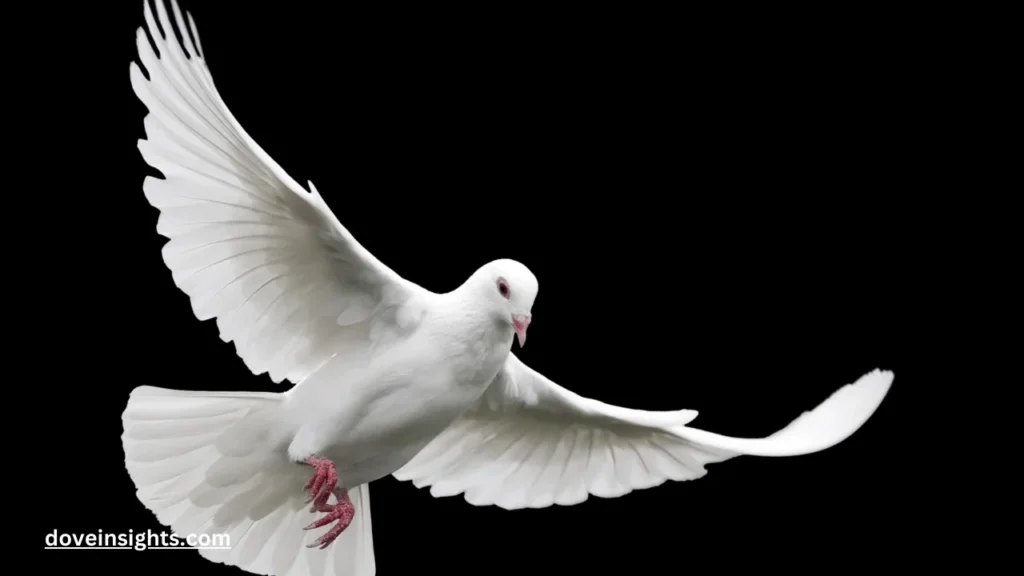
Mourning doves have also found their way into popular culture, often portrayed as symbols of peace, love, and, by extension, good fortune. In literature, film, and art, the dove is a recurring motif, usually seen as a messenger of positive transformation or spiritual insight.
For example, the image of a mourning dove is often used in wedding ceremonies, representing the beginning of a blessed journey and a good omen for the couple’s future. Similarly, mourning doves appear in artworks symbolizing hope and healing.
Many cultures also feature the mourning dove in festivals and rituals that are designed to invoke abundance, prosperity, and peace.
In the world of astrology, some individuals consider the sighting of a mourning dove to be a sign of positive cosmic alignment, offering reassurance that the universe is working in their favor.
Whether seen as a symbol of spiritual guidance, healing, or personal growth, the mourning dove holds a beloved place in the hearts of many, representing the promise of good fortune and peaceful beginnings.
Conclusion:
The question of whether mourning doves bring good luck cannot be answered definitively, as their presence is interpreted differently across cultures, beliefs, and personal experiences.
However, one thing is clear: mourning doves are more than just peaceful creatures; they symbolize hope, healing, love, and spiritual renewal—qualities often linked to the idea of good fortune.
Whether you encounter a mourning dove during a time of personal struggle or joy, its presence can serve as a reminder that peace and positive change are possible. Their calm demeanor and lifelong loyalty make them a symbol of enduring love and stability, and perhaps, in this sense, they bring a form of luck that transcends material gain.
Ultimately, the true “luck” that mourning doves represent might be found not in the mystical powers attributed to them, but in the serenity, renewal, and positive outlook they inspire in those who encounter them.
FAQ’s
Are mourning doves considered good luck?
Yes, in many cultures, mourning doves are considered symbols of peace, love, and spiritual renewal, often associated with good luck or positive omens.
What does it mean if a mourning dove visits you?
A visit from a mourning dove can symbolize comfort, healing, or the arrival of positive changes in your life. It may also be seen as a message of peace or a sign of spiritual guidance.
Why are mourning doves associated with peace?
Mourning doves are known for their gentle nature and calming coo, which have made them symbols of peace and serenity across many cultures.
Do dove colors help them survive in the wild?
Yes, the coloration of doves, especially in shades of brown, gray, and white, helps them camouflage and avoid predators in their natural habitats.
Can a dove’s color change over time?
While a dove’s color typically remains constant throughout its life, some species may experience subtle variations in color due to age, seasonal changes, or environmental factors.
How long do mourning doves live?
In the wild, mourning doves typically live between 1 to 3 years, but in captivity, they may live longer with proper care.

